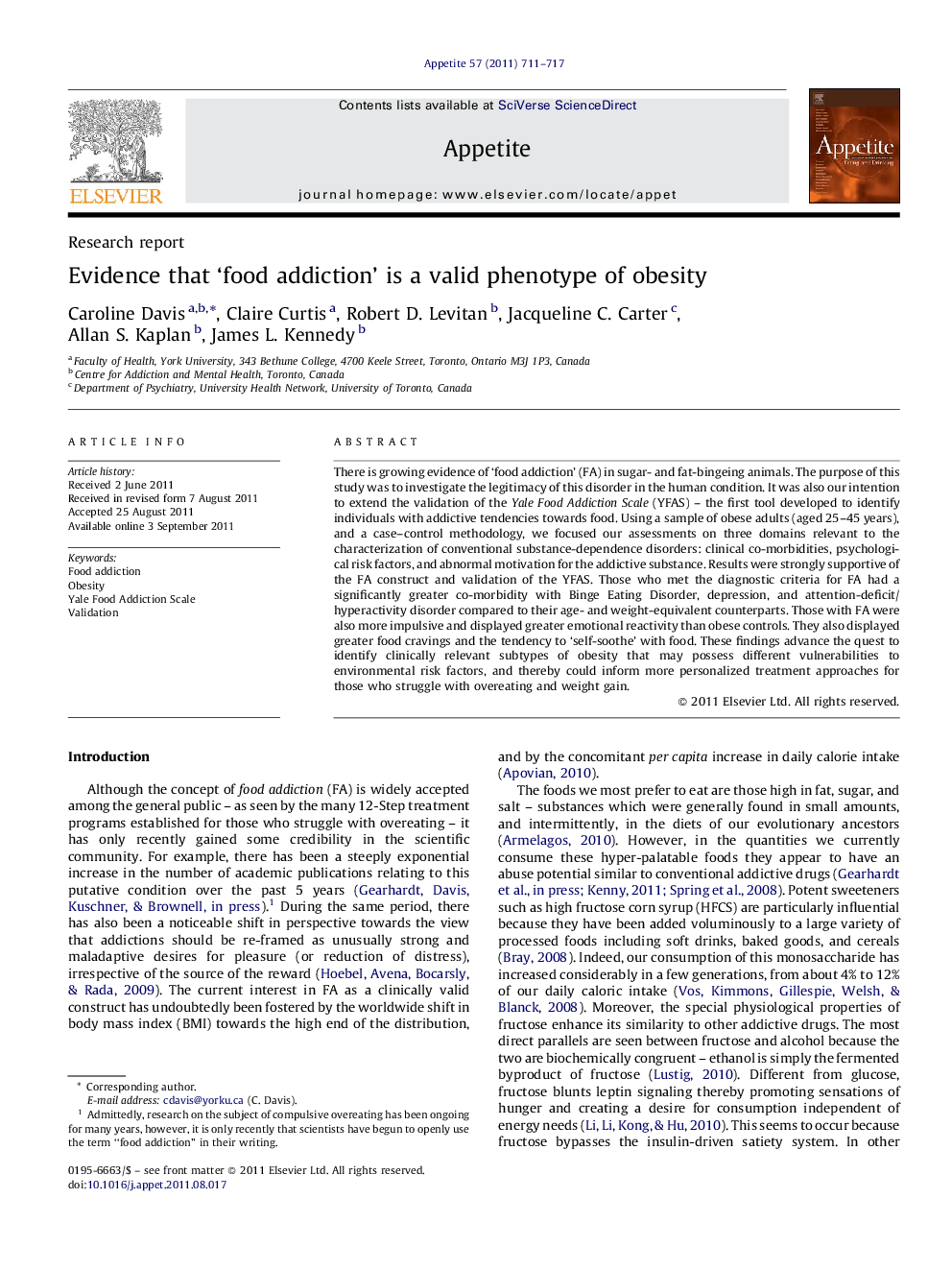| Article ID | Journal | Published Year | Pages | File Type |
|---|---|---|---|---|
| 940607 | Appetite | 2011 | 7 Pages |
There is growing evidence of ‘food addiction’ (FA) in sugar- and fat-bingeing animals. The purpose of this study was to investigate the legitimacy of this disorder in the human condition. It was also our intention to extend the validation of the Yale Food Addiction Scale (YFAS) – the first tool developed to identify individuals with addictive tendencies towards food. Using a sample of obese adults (aged 25–45 years), and a case–control methodology, we focused our assessments on three domains relevant to the characterization of conventional substance-dependence disorders: clinical co-morbidities, psychological risk factors, and abnormal motivation for the addictive substance. Results were strongly supportive of the FA construct and validation of the YFAS. Those who met the diagnostic criteria for FA had a significantly greater co-morbidity with Binge Eating Disorder, depression, and attention-deficit/hyperactivity disorder compared to their age- and weight-equivalent counterparts. Those with FA were also more impulsive and displayed greater emotional reactivity than obese controls. They also displayed greater food cravings and the tendency to ‘self-soothe’ with food. These findings advance the quest to identify clinically relevant subtypes of obesity that may possess different vulnerabilities to environmental risk factors, and thereby could inform more personalized treatment approaches for those who struggle with overeating and weight gain.
► Validation for the Yale Food Addiction Scale to identify those with addictive tendencies to food. ► Obese food addicts show higher comorbidity with binge eating, depression and ADHD than controls. ► Food addicts are more impulsive and show more addictive personality traits than controls. ► Our findings have demonstrated strong parallels between food and substance abuse.
